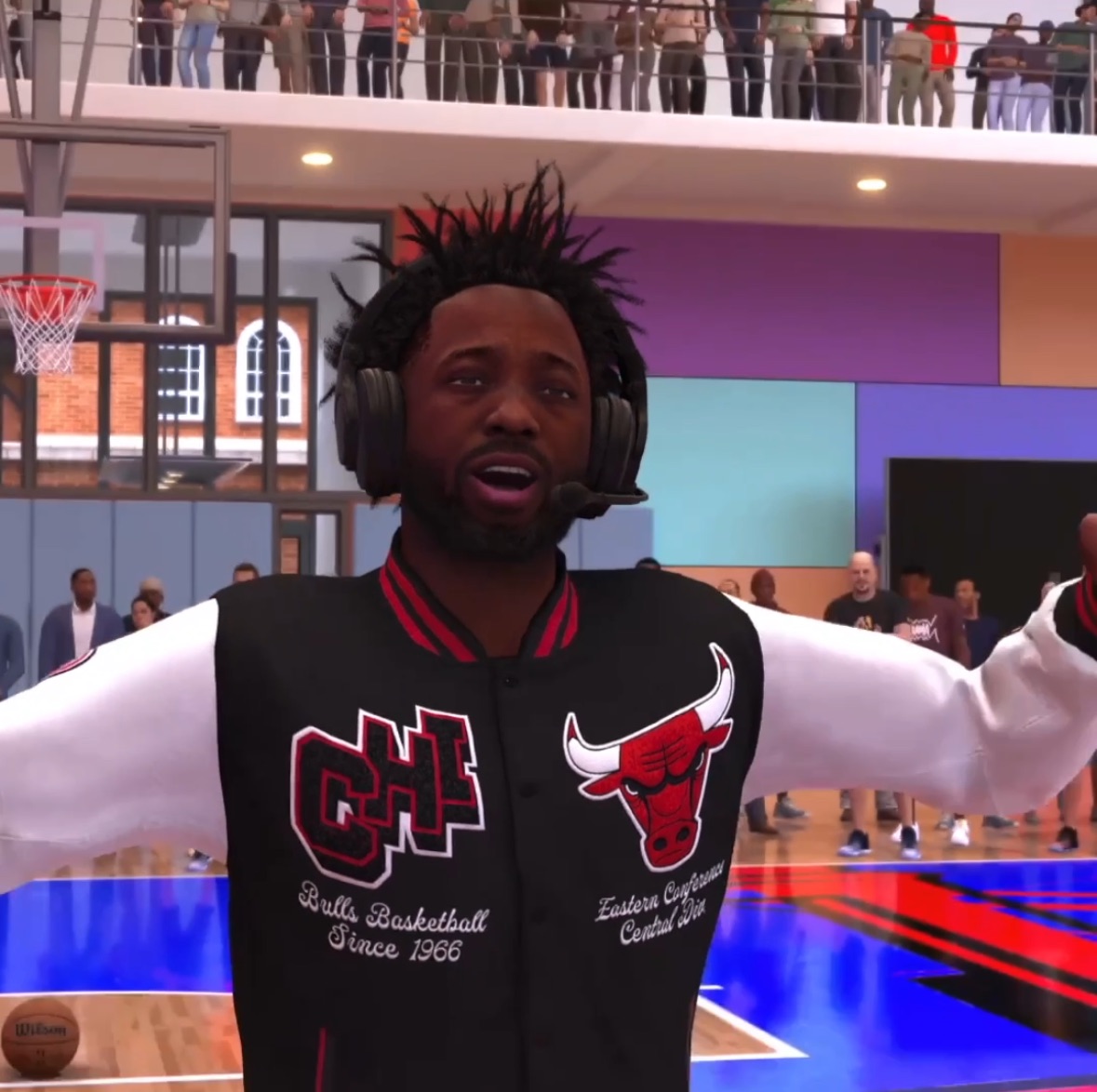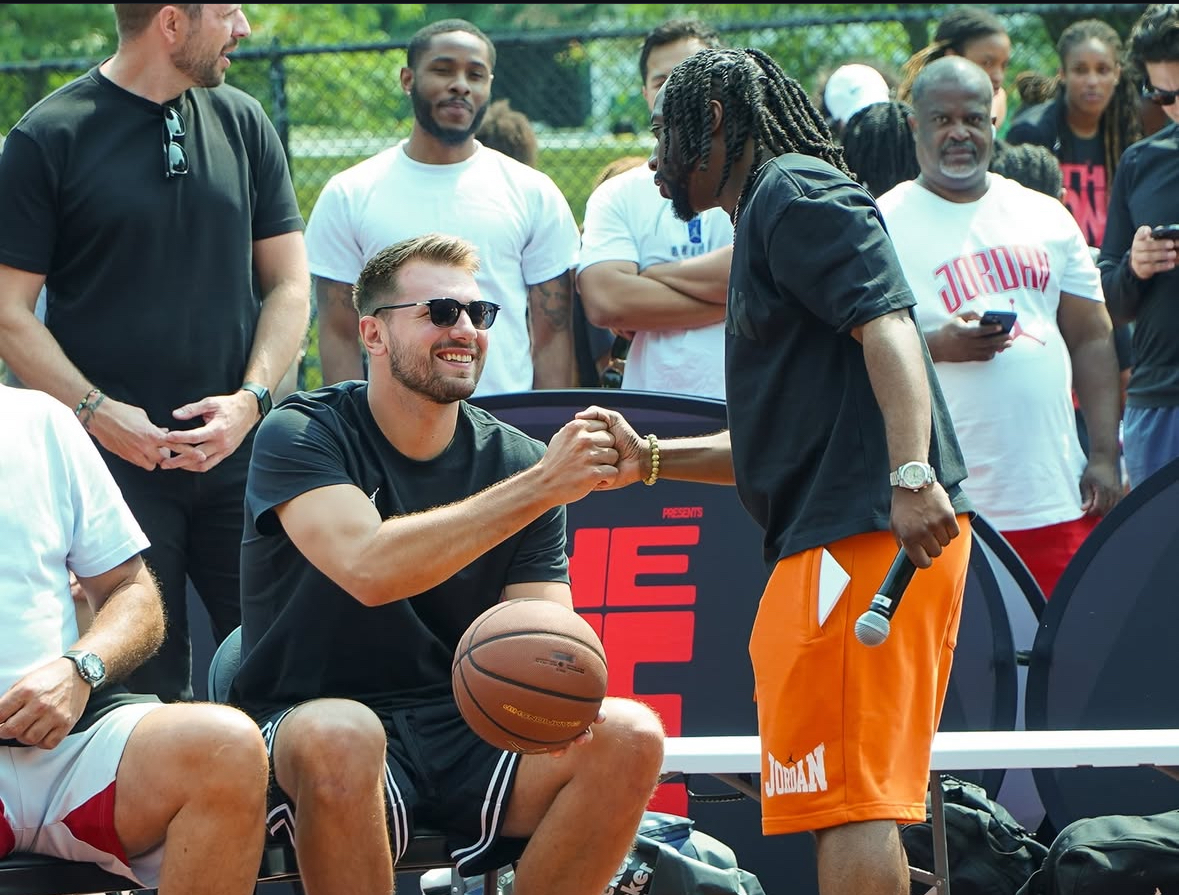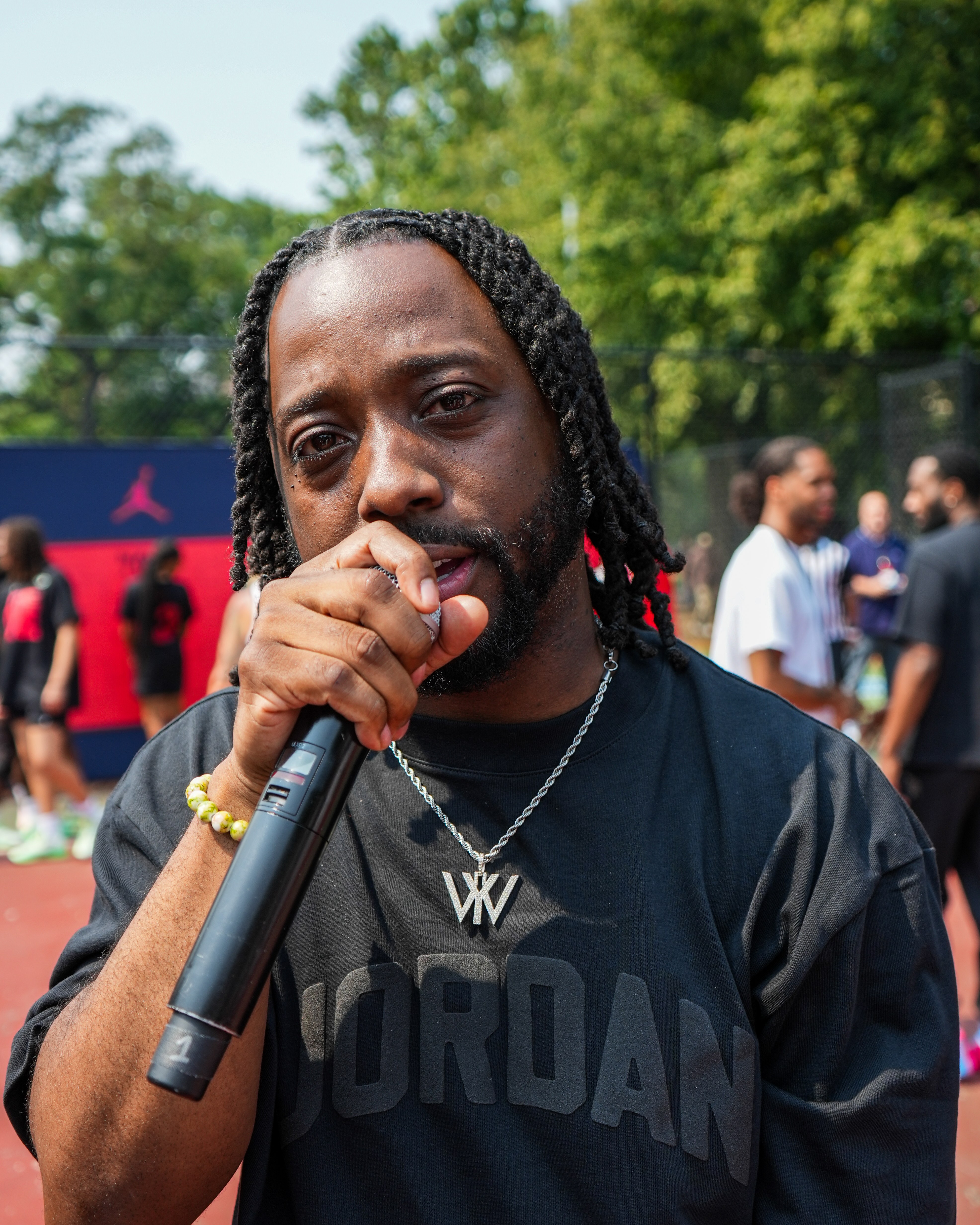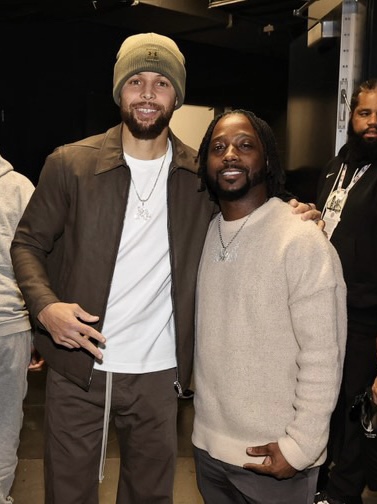
"Job's nowhere near done."Dwayne Young known to many as "Young Wayne", delivers that line like a pact with himself—a declaration from someone who has been underestimated, overlooked, and told to wait his turn. His life has been a study in persistence, a reminder that ambition and endurance can outlast the doubters. For more than a decade, he has operated by a simple code: stay in the game. That code is how a microphone—just a microphone—became his career. Not a side gig, not a hobby, but a livelihood that has carried him from South Side gyms to Nike and Jordan Brand tournaments, and now to NBA 2K, where his distinct Chicago cadence echoes across the digital blacktop in front of millions. Some love him. Some hate him. No one forgets him.

"I just say what they're thinking, but I've got the courage to say it out loud," Young says.
That's the essence of Young: part host, part hype man, part truth-teller, all Chicago. His voice doesn't need to boom. It cuts through—sharp, unmistakable, and stamped with the South Side. His success didn't come from privilege or shortcuts. It came from presence, strategy, and relentless motion.
Chicago Roots, South Side Rhythm
Young grew up in Princeton Park on Chicago's South Side. His mother kept him grounded in school, church, and after-school programs. His father carried the family's spiritual rhythm. From the start, he was in motion—on the court, at the piano, in video-game lobbies—and always listening. He studied Stuart Scott's SportsCenter cool and Ahmad Rashad's NBA Inside Stuff ease, learning cadence and timing, unaware he was rehearsing for a life built on rhythm.
Chicago has always been a basketball city, a crucible where the game takes on the weight of identity. It's the birthplace of legends—Isiah Thomas, Derrick Rose, Dwyane Wade, Candace Parker—athletes sharpened on outdoor courts and in crowded gyms before the rest of the world knew their names. Places like Murray Park, Westinghouse, and Whitney Young High School's gym are etched into its lore. Basketball here is more than competition; it's culture, toughness, proof. In that environment, Young found his lane—not scoring points, but giving the game a voice.

The Whitney Young Effect
Whitney Young Magnet High School became his proving ground. "We run Chicago right now," Young says, listing classmates and alumni who went on to shape music, business, and sports. It was where he found his confidence. At UIC, he earned a finance degree and a Walmart scholarship that led to a surreal moment—sharing a stage with Oprah Winfrey. That day confirmed what he already knew: he belonged onstage.
"That's when I realized presence matters," he recalls. "It's not what you say, it's how you hold the space." He could have gone corporate. He had the degree. But when he pictured his future, he didn't see spreadsheets—he saw microphones.

The First Mic
In 2010, at the Time To Shine Basketball Tournament at South Suburban College, Young saw his chance. He spotted the man with the microphone—Elijah "Jobba" Maxey Jr., one of Chicago's most respected emcees—and walked right up to him. Young asked for a shot. Jobba looked him over and told him no. Maybe next year.
But Young refused to let it die. He tweeted. He showed up. He kept pressing. Until one night, the co-host didn't appear, and Jobba finally handed him the mic. That was the night it all began.
"I never walked into a gym again without a microphone," Young says. That moment—Jobba's challenge, the persistence to keep coming back, and the chance that finally opened—turned a spark into a calling.
From Gigs to Grind
By 2013, Young had turned that calling into a career—an almost unthinkable feat in a business where most pay comes in exposure. He commanded pro-ams, fashion shows, talent contests, events backed by Nike and Jordan Brand.
"Some days it was $200 and a car ride," he says, "but I made every mic feel like Madison Square Garden." That energy built his reputation. He wasn't just another emcee; he became the name you called when you needed a room brought to life. Athletes wanted him courtside. Brands trusted him. Crowds remembered him. He became the voice of Chicago's summer basketball runs.
The Voice of NBA 2K
In NBA 2K24, Young's voice made its debut as the first-ever on-court emcee in the game's streetball mode—The Yard, The City—where avatars face off under outdoor lights. His cadence hyped players, cracked jokes, taunted, and turned each digital run into theater.
And it didn't end there. Young has now been featured in three straight editions—NBA 2K24, NBA 2K25, and the newly released NBA 2K26—cementing his role in the franchise. Each year, more than twelve million gamers hear him, whether they love him, hate him, or try to mute him.
"Some kids don't even realize I'm real until they meet me face to face," he says. "Then it's like, 'Wait—you're the guy calling all the trash talk?'"
He embraces the polarizing role. "My friend called me a villain," Young says, smiling. "I'll take that over being forgettable."
A Life That Feels Cinematic
The mic has carried Young into surreal scenes. He's traded words with Michael Jordan, who once pulled him aside with advice he still holds close. He's crossed paths with Kanye West, Jay-Z, and NBA stars whose names fill his Instagram feed, @youngwayne00. But these moments aren't trophies to him—they're reminders.
"Being in the room is cool," he says, "but that don't mean you've made it. You still gotta build your own."
Measured, Methodical, Inclusive
What stands out most in conversation isn't just Young's stories—it's how he tells them. He's deliberate, methodical, thoughtful. He makes space for everyone—mentors, peers, kids who might be listening. His intelligence shows in the way he builds answers, ensuring the picture is complete. He doesn't rush. He makes sure nobody is left out. That patience and inclusivity are as much his signature as his cadence.

Defining Moments, One After Another
Every career is made of turning points, and Young's reads like a film reel. He still remembers that first Time To Shine night, when Jobba told him to wait a year, and persistence turned rejection into opportunity. From then on, he never entered a gym without wanting the mic.
Each small check and small stage became a proving ground. "Some days it was $200 and a car ride," he says, "but I made every mic feel like Madison Square Garden." Those nights forged his legend.
Chicago summers pulled him deeper, into Nike and Jordan Brand pro-ams where pros, college kids, and neighborhood legends collided. Young's voice gave those games their heartbeat. He recalls gyms where NBA stars blended with teenagers, the atmosphere electric, his commentary fueling the crowd. "Chicago basketball is its own language," he says. "My job was to translate it."
And then there's NBA 2K. Across 2K24, 2K25, and now 2K26, Young's voice has become embedded in the culture of the game. Millions of players spend hours in The Yard or The City, and every possession carries his cadence. That role, perhaps more than any, has cemented him as a voice that can't be ignored.
In Motion
Ask Young who shaped him, and his list is clear: his parents, who gave him discipline and faith; Ronald Shaw and Jobba Maxey Jr., who modeled presence; his grandparents, who grounded him; and, in his own words, "everyone who didn't understand the vision."
That mix of family, mentors, and skeptics fueled his drive. Chicago didn't just shape his voice—it gave him a stage.
"The truth is, every accomplishment just gives me more goals," he says. "The youngins need to know it's possible."
Final Scene
Picture this: It's after midnight. Young steps off a train, the steel wheels fading into the night. His phone buzzes in his pocket—another wave of notifications, another reminder that his voice has traveled further than the city blocks around him.
The city hums: neon lights, traffic on the expressway, commuters heading home. But his words are already somewhere else—alive in gyms, echoing through Chicago's summer runs, stitched into the code of NBA 2K26, where avatars across the globe still hear him at tip-off.
For Young, it all connects—the Time To Shine tournament, the rejections and the callback from Jobba, the $200 gigs, the Nike and Jordan Brand courts, the grind of a decade, and the so-called villain role in 2K. It's not a straight line, but a rhythm, each beat building on the last, his career playing like a mixtape on repeat.
"We in the game. Stay in the game."
And then he grins, repeating a line he says with gratitude and proof of purpose:
"My last job let me go so that I could pursue what I really wanted to do. Well, I guess they were right. Thank you."
It isn't just a mantra anymore. It's his mission—the way Dwayne "Young Wayne" Young makes sure the clock never runs out.